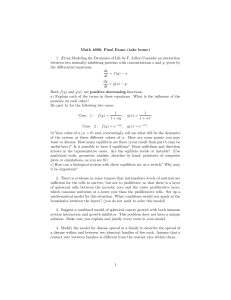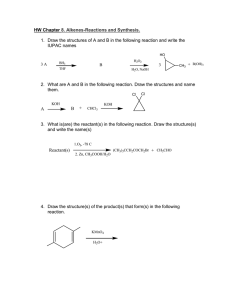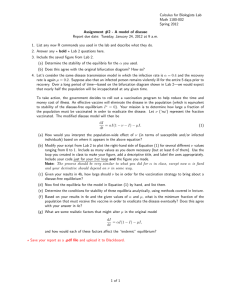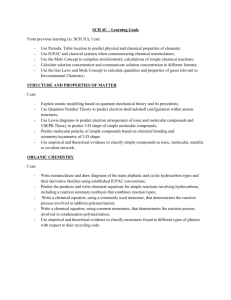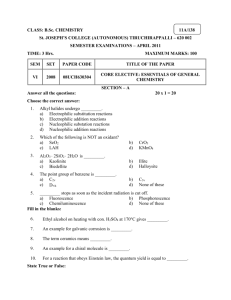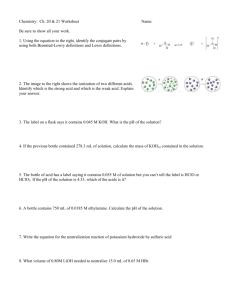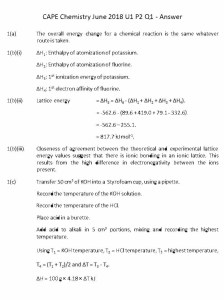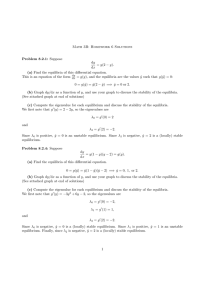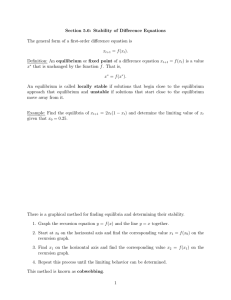pH Calculation of Weak Base Solutions
advertisement
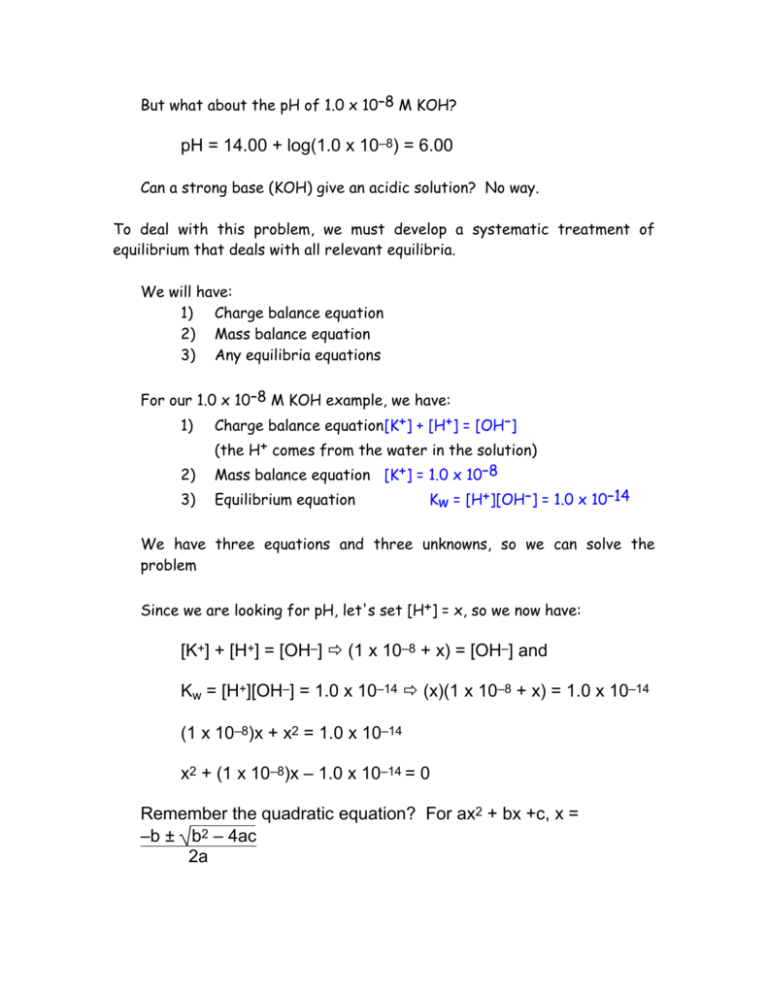
But what about the pH of 1.0 x 10–8 M KOH? pH = 14.00 + log(1.0 x 10–8) = 6.00 Can a strong base (KOH) give an acidic solution? No way. To deal with this problem, we must develop a systematic treatment of equilibrium that deals with all relevant equilibria. We will have: 1) Charge balance equation 2) Mass balance equation 3) Any equilibria equations For our 1.0 x 10–8 M KOH example, we have: 1) Charge balance equation[K+] + [H+] = [OH–] (the H+ comes from the water in the solution) 2) 3) Mass balance equation [K+] = 1.0 x 10–8 Equilibrium equation Kw = [H+][OH–] = 1.0 x 10–14 We have three equations and three unknowns, so we can solve the problem Since we are looking for pH, let's set [H+] = x, so we now have: [K+] + [H+] = [OH–] (1 x 10–8 + x) = [OH–] and Kw = [H+][OH–] = 1.0 x 10–14 (x)(1 x 10–8 + x) = 1.0 x 10–14 (1 x 10–8)x + x2 = 1.0 x 10–14 x2 + (1 x 10–8)x – 1.0 x 10–14 = 0 Remember the quadratic equation? For ax2 + bx +c, x = –b ± b2 – 4ac 2a –(1 x 10–8) ± (1 x 10–8)2 – 4(1)(–1.0 x 10–14) x= 2(1) x = 9.6 x 10–8 or x = –1.1 x 10–7 we can't have a negative concentration, so [H+] = 9.6 x 10–8 pH = –log(9.6 x 10–8) = 7.02 still slightly basic!


